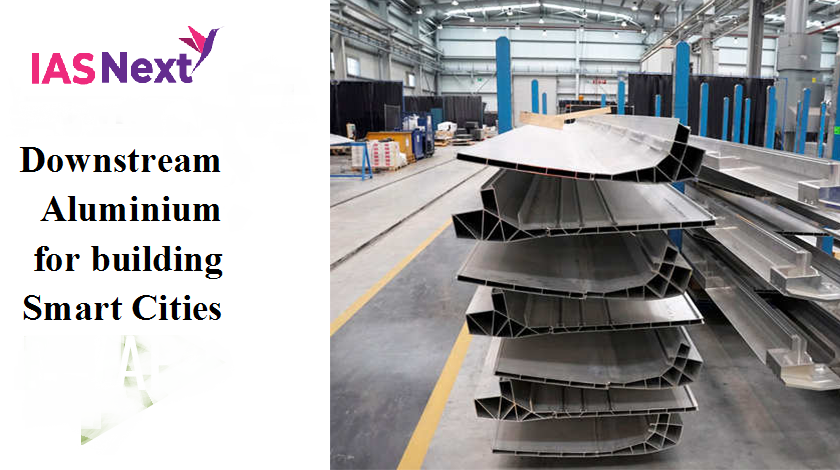CURRENT AFFAIRS
Get the most updated and recent current affair content on Padhaikaro.com
Downstream Aluminium for building Smart Cities
- IAS NEXT, Lucknow
- 25, Apr 2022

Reference news:-
Aluminium can play a significant role in creating sustainable products in the construction sector because of its environment friendly nature.
What is the need for smart cities?
- India is urbanizing exponentially with the expected influx of over 400 million people over next 35 years.
- As cities develop into smart clusters, they are set to act as the primary growth drivers for the country’s economy.
- The government of India is taking up an initiative to promote 100 sustainable and inclusive cities in a time-bound manner under Smart Cities Mission.
- The creation of smart cities involves revamping the current urban infrastructure to match the requirements of its population.
- Urban renewal and retrofitting project enable citizens to lead a decent quality of life in a clean and sustainable environment with energy-efficient buildings, innovative connectivity, and technology driving its efficiency.
What is the status of aluminium industry in India?
- Aluminum is the third most abundant element in the world behind only oxygen and silicon.
- Since Aluminium is so chemically reactive, it is not found as a pure element in nature, but instead found in combined state.
- The top source of aluminum is an ore called bauxite.
- The aluminum industry can be separated into three main segments
- Upstream– It refers to the production of aluminum from bauxite mining to alumina refining to aluminum smelting.
- Midstream – It refers to converting aluminum into manufacturing feedstock.
- Downstream- It refers to engineered products and solutions.
- India lies at the second position in the list of leading primary aluminium producers in the world.
- In India, the power sector is the biggest consumer of aluminium at followed by transport and automobiles at, building and construction, and consumer durables.
- The per capita aluminium consumption in India is 2.5 kg whereas the global average level is 11 kg.
- The downstream aluminium segment also generates employment opportunities and supports the country’s GDP as smart cities become hubs of excellence.
How is Aluminium significant in building eco-friendly cities?
- Environment friendly– Aluminium offers half the carbon footprint of competing metals and thus more significant environmental sustainability benefits.
- Cost factor- Aluminium poles turn cities smarter with their longevity, reduced installation, and maintenance costs.
- Recyclable- Aluminium is a 100% recyclable metal, and it’s recycling only requires 5% of energy, making it highly efficient.
- Sustainable mobility solutions– The malleability, ductility, conductivity, and light-weighting properties make aluminium an up-to-date material in transport.